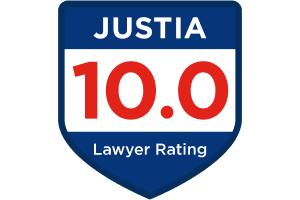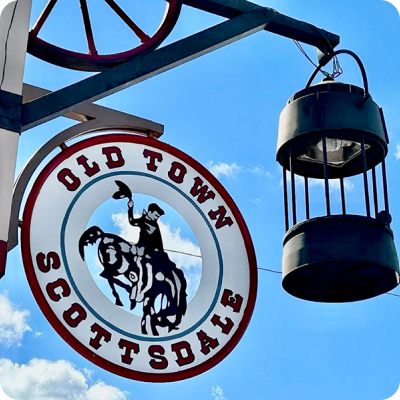A True And Sad Story
A true and sad story. I was retained by the beneficiaries of a deceased father to settle an estate. Their father had created a Living Trust in another state. Again, I did not create this Living Trust for the deceased father. The beneficiaries were two siblings in their sixties. The estate was not too large, but large enough to provide that each sibling was to receive approximately $350,000.00. Everything was in a Living Trust which means no probate, so no problems, right? Wrong. The Living Trust instructed that the assets were to be equally divided between the two siblings and distributed “free of trust.” I repeat. “FREE OF TRUST.” That means that all protection of the inheritance is stripped away and the funds would be fair game for any of the beneficiary’s creditors. Yes, you guessed it. One of the beneficiaries was in the middle of a big bankruptcy and had liens on everything. As soon as the distribution was made the sibling going through bankruptcy it all went up in a puff of smoke because every last cent was claimed by creditors. The deceased father had intended that the assets he had spent his life working for go to his children to provide a safe haven so they wouldn’t be put out into the street if they ran into desperate time (which can fall upon the best of us).
Moral of the story — when you see the words “Free of Trust” in any Living Trust, get it evaluated by a good estate planning attorney. Like in the above true story, the words “Free of Trust” can cause devastation! This result could have been so easily prevented by incorporating asset protection provisions in the Living Trust so that they take effect upon the death of the trust maker.
You may be surprised to learn that not only has asset protection planning been around for a long time, but you have already engaged in it at some point during your life. In fact, you probably have one or more types of traditional asset protection planning in place at this very moment. The problem is in many cases the type of planning you have right now won’t be enough to protect you and your family.
What is Asset Protection Planning?
Asset protection planning is done to preserve and protect your property in advance of a claim, or the threat of a claim. In other words, this type of planning will not be effective to shield your property from an existing claim. Instead, it must be done long before there is even the hint of a claim.
The goals of asset protection planning are to provide an incentive for settling a claim, improve your bargaining position, offer options when a claim is asserted, and, ultimately, deter litigation.
What Is Traditional Asset Protection Planning, and Why Does It Often Fail?
There are several types of traditional asset protection planning that have been around for years. The most common is liability insurance – automobile, homeowners, umbrella, officers and directors, malpractice, and the like. You probably have at least one liability policy in place right now. Unfortunately, liability insurance may actually encourage a lawsuit since it is perceived as ‘easy money.’ Aside from this, liability insurance often fails because the coverage is inadequate, or the policies have extensive exclusions.
Another common type of traditional asset protection planning is the use of a business entity, such as a corporation, to segregate business assets and liabilities from personal assets and liabilities. But while a corporation may shelter your personal assets from a lawsuit filed against the corporation, the opposite is not true – if you, as the shareholder of a corporation, are personally sued, your shares of stock in the corporation are not protected from a judgment entered against you. Of course, it is possible that if your corporation fails to observe certain formalities, then the ‘corporate veil’ may be pierced and your personal assets will become vulnerable to a judgment entered against the corporation.
The final common type of traditional asset protection planning is established under state law and allows residents to exempt specific assets from the claims of creditors. This may include protection for property owned jointly by spouses (‘tenancy by the entirety’ ownership), a primary residence (‘protected homestead’), the cash value of life insurance, investments held in a retirement account, and annuities. Nonetheless, these state exemptions are often subject to limitations, such as placing a cap on the value or land area of the protected homestead.
What Should You Do?
You may think that only wealthy people need to do advanced estate planning. Remember this. If someone came into your office today and set down $5,000.00 in hundred dollar bills on your desk and said, “Congratulations. It’s you lucky day. This $5,000.00 is a gift for you!” Wouldn’t you be excited to be given $5,000.00? Of course you would be excited! If you would be excited to receive a free gift of $5,000.00 then why wouldn’t you want to protect a much larger sum of $100,000.00 or a $1,000,000.00? Why would you let your clients risk potential losses by not having a good estate plan in place with asset protection features? Aren’t you supposed to be protecting your clients? Yes, you are — so protect them! If you see the words “free of trust” tell them to run! Get their estate plan evaluated immediately!
The truth is anyone who has accumulated any amount of wealth can be sued for just about any reason. The only way to protect you and your family is to engage in more advanced forms of asset protection planning such as a Revocable Living Trust with asset protection features built in; the IRA Beneficiary Trust; irrevocable lifetime trusts; an LLC; and other proven asset protection estate planning options.
The Connor Law Firm can help you go beyond traditional asset protection planning by creating a comprehensive plan that will be custom-tailored to your family situation and financial status. Please call today to arrange for your FREE NO OBLIGATION asset protection consultation.
If I can assist you in any way please contact me.
Ben E. Connor
Attorney at Law
The Connor Law Firm, PLC
9777 N. 91st Street
C-103
Scottsdale, Arizona 85258
800-679-6709 (toll free)
480-296-2069 (local)
Ben@ConnorLegal.com
www.connorlegal.com
Lic. Arizona & Utah







